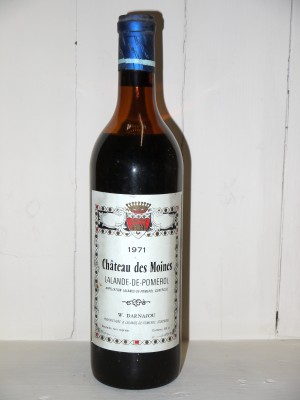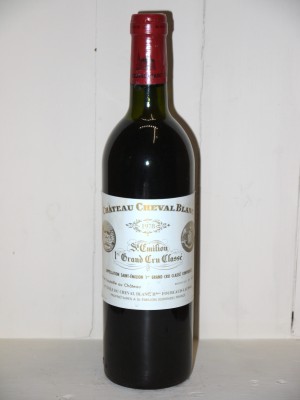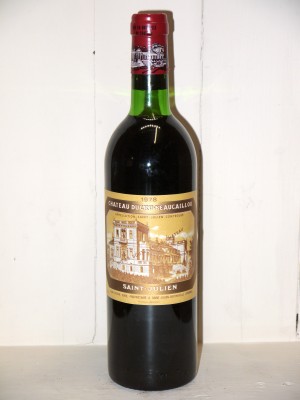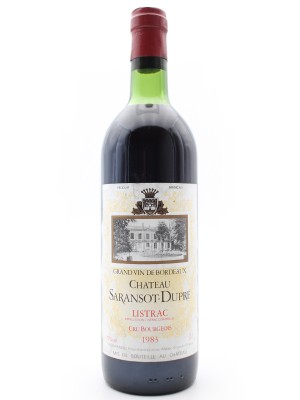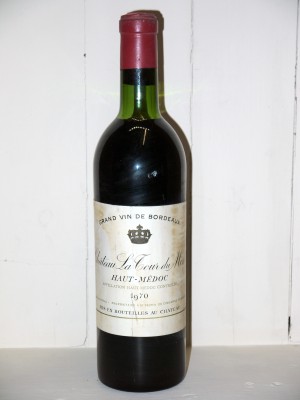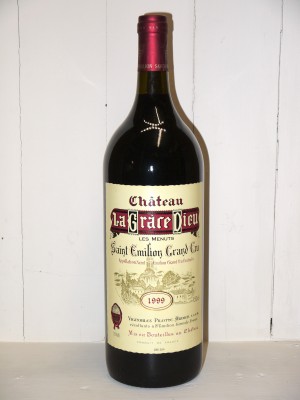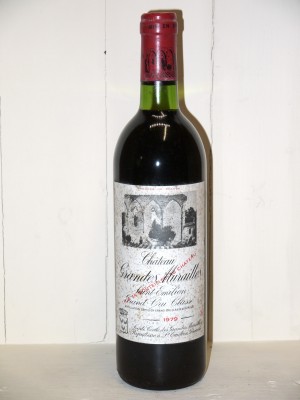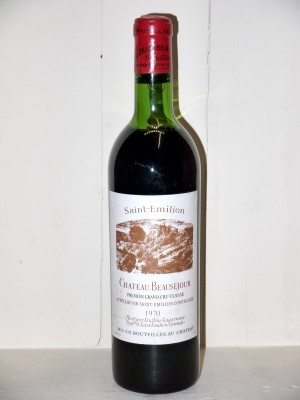No products
Last blog articles
Appellation Bordeaux
Catalog
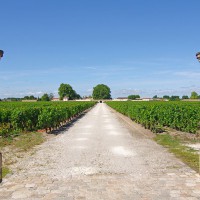
Grands vins - Bordeaux
A renowned wine of the French wine landscape, the great Bordeaux wines are a world reference. The Bordeaux vineyard produces renowned wines in the Gironde department, both in red and white wine.
A wine region with a wide and varied range of wines, the Bordeaux vineyard allows wine lovers to enjoy...
A renowned wine of the French wine landscape, the great Bordeaux wines are a world reference. The Bordeaux vineyard produces renowned wines in the Gironde department, both in red and white wine.
A wine region with a wide and varied range of wines, the Bordeaux vineyard allows wine lovers to enjoy affordable wines as well as rare wines. Bordeaux, with its grands crus classés, is the reflection of a prestigious wine region. But beyond this reputation, these are wines that stand out for their ability to stand the test of time, to improve and to reveal aromas of rare complexity.
The grands crus classés of Bordeaux since 1855
The history of the grands crus classés of Bordeaux is inseparable from the 1855 classification, an initiative of Emperor Napoleon III. This classification, which is still in force today, divides Bordeaux wines into five categories, thus establishing a hierarchy that has spanned the centuries. At the top, the Premiers Crus Classés are among the most prestigious wines in the world, with iconic names like Château Margaux, Château Lafite Rothschild, Château Latour and Château Haut-Brion. These wines are renowned for their elegance, finesse and exceptional ageing potential.
The Deuxièmes Crus Classés are not far behind, offering wines of remarkable quality and great complexity, while the Troisièmes Crus Classés are distinguished by their perfect balance and delicacy. The Quatrièmes Crus Classés are renowned for their power and structure, characteristics that give them a unique character. Finally, the Cinquièmes Crus Classés are often synonymous with elegant and fruity wines, perfect for those looking for a refined and accessible wine.
The grands crus classés of Bordeaux are not just wines, each bottle is the fruit of a unique terroir and ancestral know-how. These wines, at once elegant, complex and capable of aging for decades, represent the prestige of world viticulture.
The appellations of Bordeaux’s great wines
The great wines of Bordeaux come from some of the region’s most prestigious appellations, mainly located in the Médoc. Among these, Pauillac is undoubtedly one of the most famous, renowned for its powerful and structured wines. This appellation is home to legendary châteaux such as Lafite Rothschild and Latour, which produce wines of great depth, capable of aging for several decades.
Saint-Julien, another renowned appellation, is known for the finesse and elegance of its wines. The châteaux of this region produce wines that combine delicacy and complexity, thus offering an unforgettable taste experience. Margaux, also renowned for its refined wines, is an appellation where elegance and subtlety are the key words. Margaux wines are often considered the most feminine of Bordeaux’s great wines, with a silky texture and delicate aromas.
Saint-Estèphe, on the other hand, produces powerful and tannic wines, perfect for those who appreciate robust and structured wines. Finally, the Haut-Médoc brings together many châteaux that produce high-quality wines, each with its own character, but all steeped in the tradition and terroir of Bordeaux.
These appellations are just a part of the wealth of great Bordeaux wines, which also include prestigious names such as Pomerol, where we find the famous Château Petrus and Château Le Pin, as well as Sauternes, with the legendary Château d'Yquem, a flagship of sweet wines.
The characteristics of the great Bordeaux wines
The great Bordeaux wines are the result of an alchemy between terroir, grape varieties and know-how. Each château has a unique terroir, made up of specific soils and diverse exposures, which give each wine its own personality.
Blending is another fundamental characteristic of the great Bordeaux wines. Traditionally, these wines are blends of several grape varieties, mainly Cabernet Sauvignon and Merlot, to which Cabernet Franc, Petit Verdot or Malbec can be added. Each grape variety brings its own contribution: Cabernet Sauvignon for structure and longevity, Merlot for roundness and fruity aromas, Cabernet Franc for finesse and freshness, thus creating a harmonious balance that characterizes the great wines of Bordeaux.
Finally, aging plays a crucial role in the development of aromas and the complexity of Bordeaux grands crus. Designed to age for many years, these wines develop subtle and complex aromas over time. This maturation process, which can last decades, is essential to allow the great wines of Bordeaux to reveal their full potential.
Why Invest in Bordeaux Fine Wines
Investing in Bordeaux fine wines is a wise decision. One of the main reasons why Bordeaux fine wines are a good investment is their rarity. Production of these wines is limited, making them sought-after by collectors and enthusiasts around the world. This rarity, combined with constant demand, contributes to the appreciation of the value of these wines over time.
Prestige is another major reason to invest in Bordeaux fine wines. Owning a bottle of a grand cru classé is synonymous with luxury and refinement. These wines are often associated with moments of celebration and conviviality, and their mere presence in a cellar is a mark of distinction. Finally, the value of Bordeaux fine wines tends to increase over time, especially for exceptional vintages.
-
-
-
Lalande de Pomerol appellation. Ancient wine. Excellent preservation.
61,00 €In Stock -
First Growth Bordeaux. Saint-Emilion appellation. Bottled at the Château. Rare wine.
474,00 €In Stock -
First Growth Bordeaux. Saint-Emilion appellation. Bottled at the Château. Rare wine.
479,00 €In Stock -
First Growth Bordeaux. Saint-Emilion appellation. Bottled at the Château. Rare wine.
364,00 €In Stock -
Second Growth Bordeaux. Saint-Julien appellation. Great Bordeaux wine. Bottled at the Château.
192,00 €In Stock -
Great Bordeaux wine. Listrac-Médoc appellation. Cru Bourgeois. Bottled at the Château.
32,00 €In Stock -
Médoc appellation. Great vintage. Bottled at the Château.
49,00 €In Stock -
Saint-Emilion Grand Cru appellation. Bottled at the Château. Magnum Size.
69,00 €In Stock -
Saint-Emilion Appellation. Grand Cru Classé. Bottled at the Château. Great vintage.
61,00 €In Stock -
First Growth Bordeaux. Saint-Emilion appellation. Bottled at the Château.
71,00 €In Stock

 Grand cru, a wine as rare as it is prized
Grand cru, a wine as rare as it is prized
 Wine making and vinification
Wine making and vinification
 What is the difference between white wine, rosé wine and red wine?
What is the difference between white wine, rosé wine and red wine?
 Process of creating a bottle of wine
Process of creating a bottle of wine
 Rare and forbidden varieties in France
Rare and forbidden varieties in France
 Wine grape varieties : types and particularities
Wine grape varieties : types and particularities


